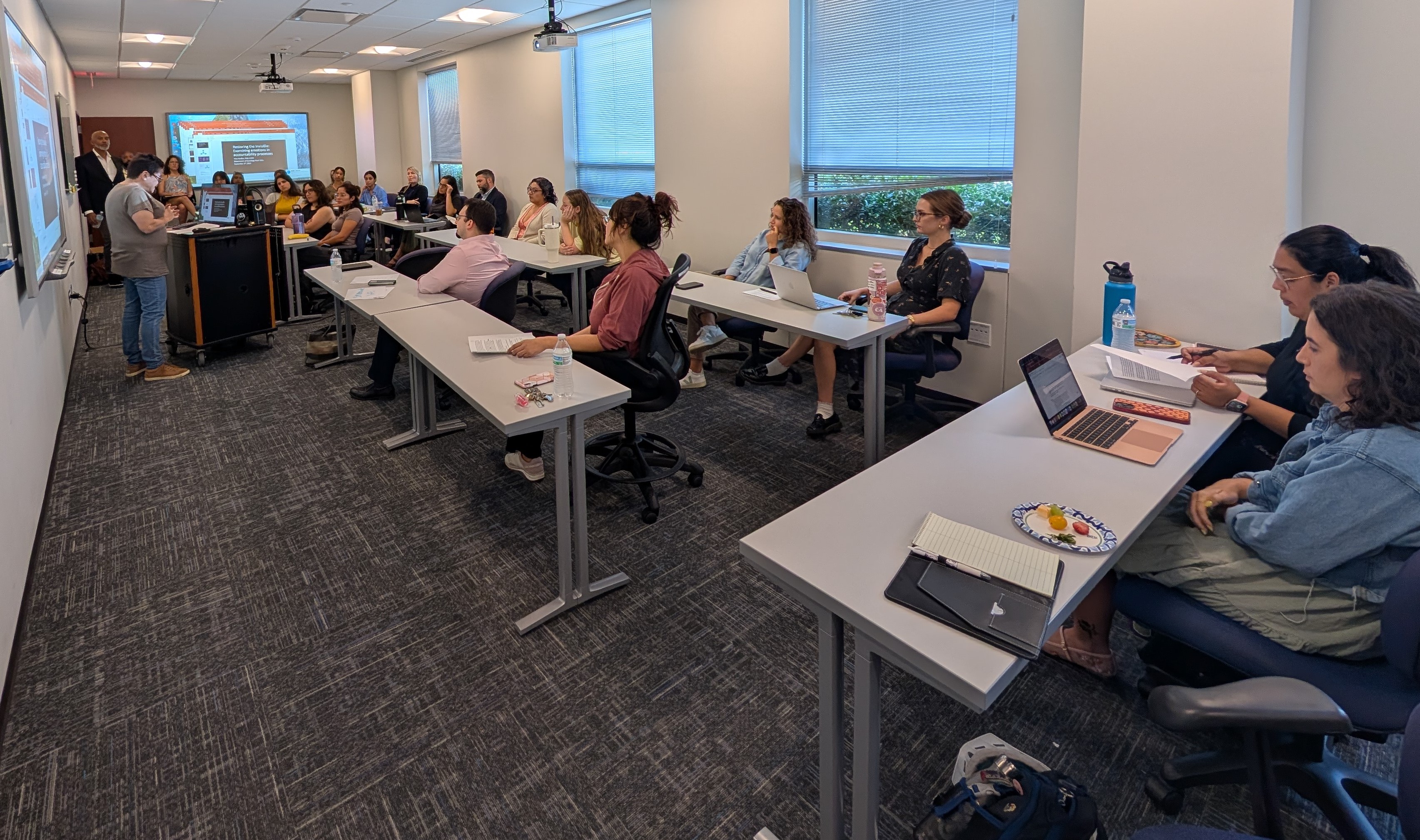
The Sociology Department held its inaugural Flash Talk in September. The event showcased the department’s breadth in research topics. Both faculty and graduate students presented their works in progress.
For example, Imge Dogan talked about how family disruption–oriented stressors, such as divorce, parental incarceration, or moving, shape adolescent delinquency. Dr. Alexander Hernandez introduced an innovative study that investigates how our perceptions of the presenter affect our interpretation of the message that is presented. This work has important implications for real-world interactions as well as the increasing number of online interactions that involve materials presented by avatars. Madison Adams talked about how dating app-facilitated sexual violence lacks formal recourse options (both within the apps and by law) and how due to this deficit, users often turn toward social media as a space of support and a whisper network.
Dr. Thomas Marlow described his recent work tracking the rise and fall of corporate discourse on environmental, social and governance (ESG) issues using computational text analysis. Jaqueline Mendez examined bureaucratic brokering in mixed-status families, exploring the strategies families employ to overcome systemic barriers and examining how these dynamics shape family relationships and identity negotiations. Dr. Troy Harden explored the emotional processes of restorative justice from the perspectives of an established restorative justice agency, including reflections of community members, organizational staff, stakeholders, and former program participants connected to the program. Dr. Harden’s study incorporates best practices associated with implementation science research, incorporating common element approaches in order to best understand “what works” and “how it works”.
Anna Estelle Kelly (co-authors: Dr. Jonathan Reid and Dulce Espinoza) examined the role of local institutions, including family, religion, polity, military, and education, in shaping the relationship between protests and police-involved killings. Dr. Nancy Plankey-Videla’s (co-author: Joseline González-Ajanel) study using focus groups from 2014-15 explores how Latine immigrant parents maneuver everyday life developing a liminal existence, an emotional habitus where Latine immigrant parents move between fear and joy (e.g., fear of being separated from their loved ones; joy in celebrating small and big accomplishments in the midst of adversity) because residing in fear alone is unsustainable. Dezerae Reyes investigates how “smart” transportation systems may not be equally smart for everyone and what are the barriers in expanding mobility for different population groups.
Congratulations to the presenters and a big thank you to the Colloquium Committee, Dr. Nadia Kim (chair), Dr. Troy Harden, Anna Estelle Kelley, for organizing this event!
